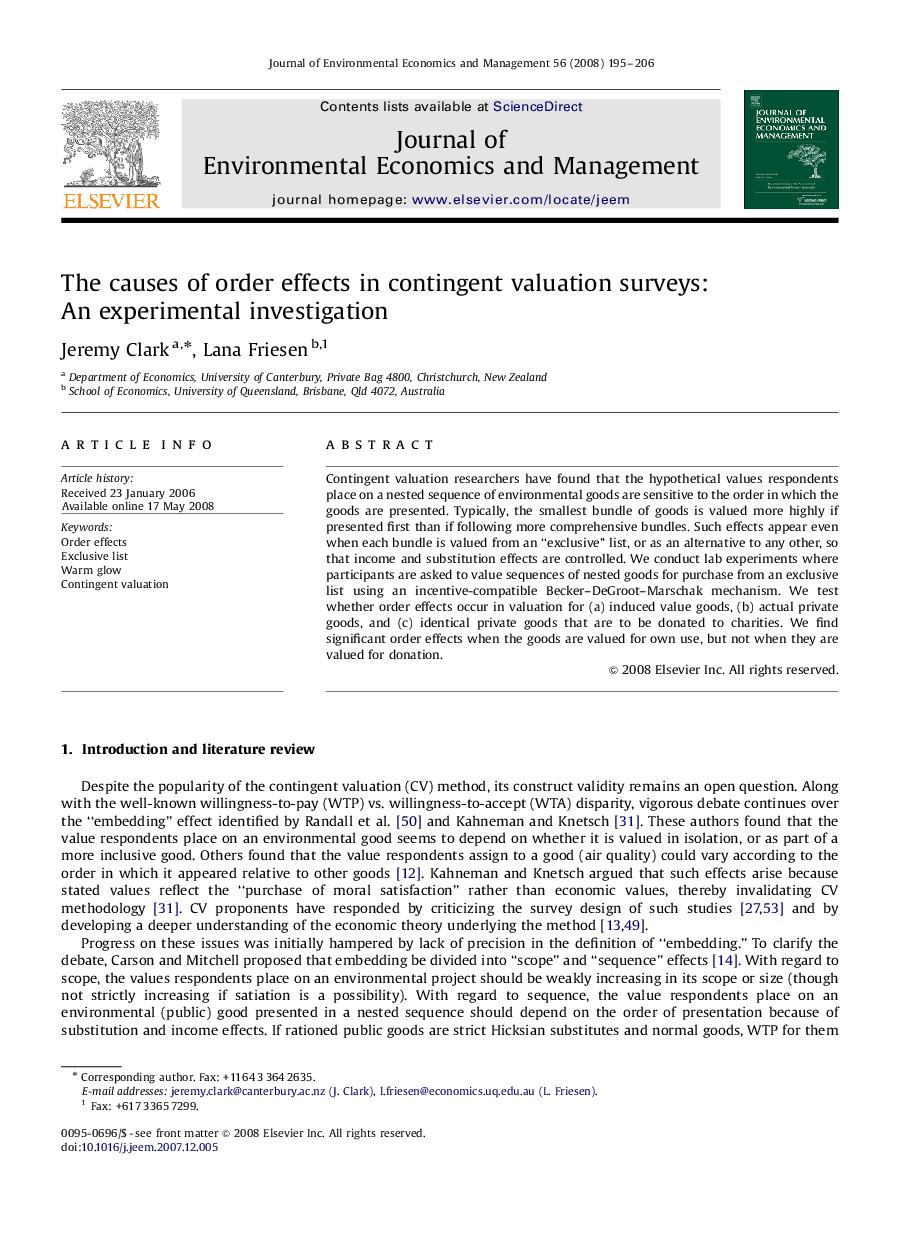| Article ID | Journal | Published Year | Pages | File Type |
|---|---|---|---|---|
| 958910 | Journal of Environmental Economics and Management | 2008 | 12 Pages |
Contingent valuation researchers have found that the hypothetical values respondents place on a nested sequence of environmental goods are sensitive to the order in which the goods are presented. Typically, the smallest bundle of goods is valued more highly if presented first than if following more comprehensive bundles. Such effects appear even when each bundle is valued from an “exclusive” list, or as an alternative to any other, so that income and substitution effects are controlled. We conduct lab experiments where participants are asked to value sequences of nested goods for purchase from an exclusive list using an incentive-compatible Becker–DeGroot–Marschak mechanism. We test whether order effects occur in valuation for (a) induced value goods, (b) actual private goods, and (c) identical private goods that are to be donated to charities. We find significant order effects when the goods are valued for own use, but not when they are valued for donation.
